
Celebrating a Revolution That is No Longer Celebrated
The Gambia is an interesting place. It was a part of both the Mali and Songhai Empires. Ibn Battuta visited in the 1300s and had lovely things to say about the justice-minded people who lived there. It’s nearly completely surrounded by Senegal. And it is littered with stone circles resembling versions of Stonehenge. Not much is absolutely known about the stone circles of the Gambia, but they are believed to mark the burial places of kings.
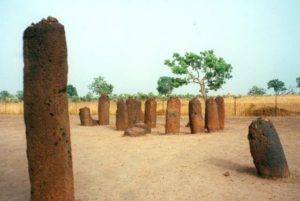
The Gambia was also a British colony, sometimes on its own and sometimes connected with Sierra Leone. The River Gambia was vital to African trade, and as such the British had great interest in it.
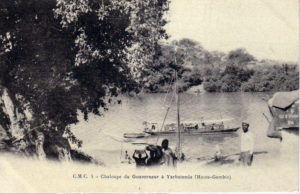
Movement toward independence started earlier in the Gambia than in many other British colonies, as early as 1901, and in the 1960s independence was granted.
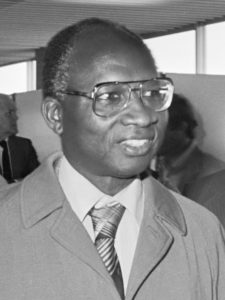
Things went along to go along, as they so often do in the Gambia. Dawda Jawara remained at the helm of the impoverished nation until 22 July 1994, when an upstart army lieutenant named Yahya Jammeh and his accomplices, spurred into action by months without pay and with almost no preparation, mounted a bloodless coup that took over the nation.
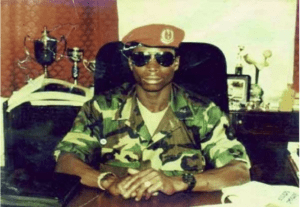
If the coup that toppled the Jawara government was bloodless, Jammeh’s rule would not be. He cracked down on the press immediately. People began to disappear, extrajudicial killings were carried out by his “Jungulars“, who also didn’t stint to lay out beatings at their pleasure. And most important of all – no one was to ever speak of what happened to them. Everyone kept silent, alone in their grief and fear.
By 2016 Gambians had had enough. The kidnapping, torture, and death of opposition leader Solo Sandeng started a new revolution – one that would see “His Excellency Sheikh Professor Alhaji Dr Yahya AJJ Jammeh Babili Mansa” tossed out of the Gambia. But he did not go easily.
Gambian dissidents in exile in Dakar were inspired by Srđa Popović‘s book Blueprint for Revolution, which emphasized non-violent methods to bring about regime change. They saw how Popović’s techniques worked to bring down Slobodan Milosević in Serbia, and they wanted the same outcome.
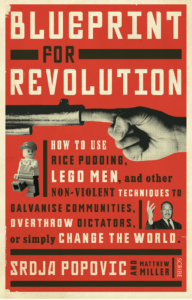
Utilizing social media, Gambians supported by those in the diaspora were silent no more. The tide had turned against the many-titled dictator, and he lost the December 2016 election. He did not accept the results.
But the ECOWAS community did accept the voice of the Gambian people, and the Senegalese military massed at the Gambian border and then entered the country. Jammeh finally gave up on 21 January 2017, fleeing to Equitorial Guinea.
Thus the 22 July holiday Revolution Day is still a holiday that is not a holiday, in remembrance of a revolution that has been discredited.
The new government in the Gambia has made statements that Yahya Jammeh (who has lost at least one of his titles) is not banned from returning to the nation he ruled with an iron fist for 22 years. But they also released a statement that he should not do so without permission. It’s dangerous, you see.
More on the Gambia and the ousting of Yahya Jammeh:
- July 22, 2020
- Culture , History , Interesting

